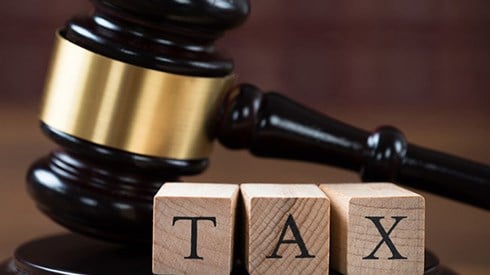Appeal in Johnson & Johnson New Jersey IPT Case Decided for Taxpayer

P. Bruce Wright , Saren Goldner | December 16, 2020

The claim by Johnson & Johnson for refund of insurance premium tax (IPT) (otherwise known in the industry as "direct placement tax"), which was paid to the State of New Jersey, seems to finally have been decided.
Before the enactment of the Nonadmitted and Reinsurance Reform Act (NRRA) (which was a part of the Dodd-Frank legislation), New Jersey collected IPT on both business directly placed with companies nonadmitted in New Jersey and surplus lines business placed through a surplus lines broker with an approved surplus lines insurer. In the former case, the insured was responsible for paying the tax, and, in the latter, the surplus lines broker was responsible for collecting and paying the tax. In each case, the obligation under New Jersey law only applied the tax to premium relating to New Jersey risks.
The NRRA, which was clearly by its terms intended to preempt the rules regarding the taxation of both nonadmitted placements and surplus lines placements, provided that only the "home state" of an insurance policy could require any premium tax payment with regard to nonadmitted insurance (which was defined in the NRRA as "any property and casualty insurance permitted to be placed directly or through a surplus lines broker with a nonadmitted insurer eligible to accept such business").
After the enactment of the NRRA, New Jersey amended its law to provide that, in general, if a surplus lines policy covers risks in New Jersey and other states and the home state of the policy is New Jersey, the tax payable shall be based on the total United States premium. No mention was made of placements made directly with nonadmitted insurers, which under the statute, it would seem, after the amendment, were to be taxed the "old way" (i.e., with regard to premium with respect to New Jersey risks).
Johnson & Johnson after 2011 paid IPT on the total amount of premium it paid to its Vermont captive (which premium covered both New Jersey and non-New Jersey risk). Subsequently, Johnson & Johnson filed a complaint in the New Jersey Tax Court demanding a refund of IPT paid on premium, which related to the non-New Jersey portion of the risk being insured. The New Jersey Tax Court held for the State of New Jersey, stating that the amendment to the law applied to all payments made to nonadmitted insurers, including both direct placements and surplus lines placements. Johnson & Johnson appealed, and the appellate division reversed the New Jersey Tax Court decision, stating that the amendment to the law requiring IPT on the full premium when the home state of the policy was New Jersey only applied to payments made in the surplus lines market, which is what the statute clearly stated. New Jersey then appealed to the Supreme Court of New Jersey, which issued a per curiam decision affirming the appellate division decision and granting Johnson & Johnson its refund. There was, however, a dissent wherein one justice disagreed with the view that the plain language of the statute should control.
The question is what comes next. Insureds such as Johnson & Johnson who paid IPT on their entire direct premium paid to out-of-state captives or commercial insurers should be expected to file for refunds. It also would seem that New Jersey may now amend its statute so that it will clearly apply to both surplus lines and other nonadmitted business, even though the state may have previously decided not to amend the statute because such amendment might have interfered with the state's desired outcome in the approximately $55 million Johnson & Johnson case.
P. Bruce Wright , Saren Goldner | December 16, 2020
